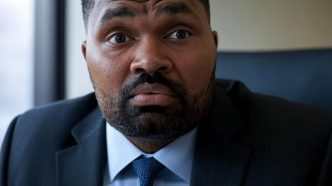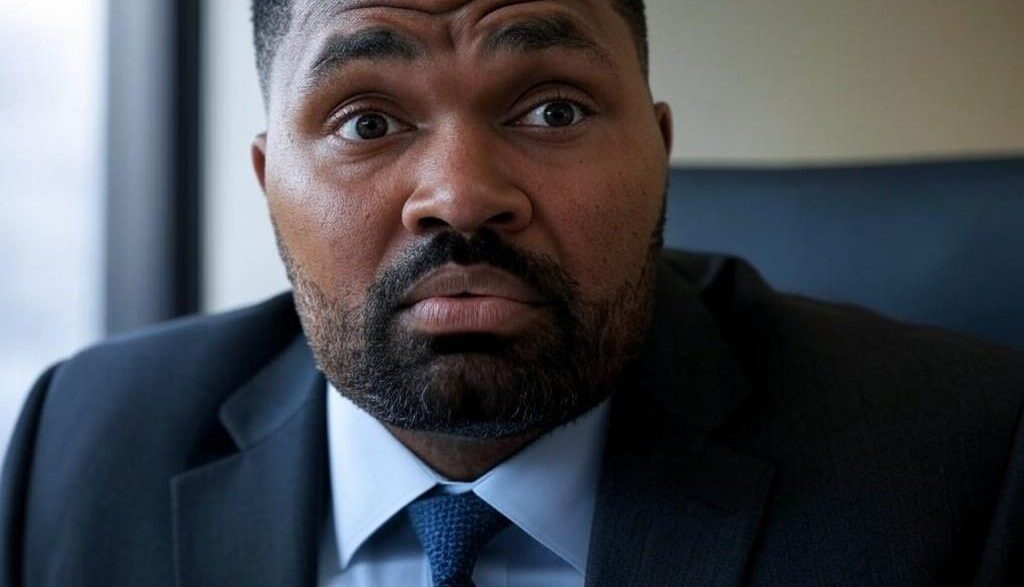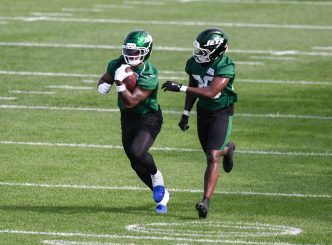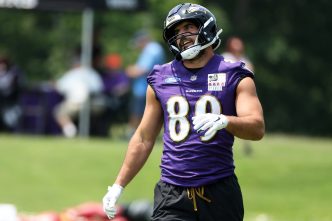When the New England Patriots appointed Jerod Mayo as head coach back on January 17, team owner Robert Kraft was buzzing with hope that this signaled a thrilling new era for a franchise boasting numerous championships. Fast forward just a year, though, and Mayo’s term has concluded. Fresh off a 23-16 victory against the Buffalo Bills, the Patriots announced they were parting ways with their head coach, wrapping up a tough 4-13 season under his leadership.
Kraft had originally earmarked Mayo as Bill Belichick’s successor following a remarkable 24-season run, particularly praising Mayo’s ability to resonate with a younger generation and unite the locker room. Mayo’s ascent from linebacker coach to head coach was expedited with succession terms embedded in his contract, driven by Kraft’s concern over potentially losing him to other suitors like the Denver Broncos, Las Vegas Raiders, and Philadelphia Eagles. However, Kraft has now made a sharp U-turn; here’s an insight into why the change was made and what lies ahead for the Patriots this offseason.
Why was Mayo’s tenure cut short?
Kraft seemed prepared for the “growing pains” bound to accompany Mayo’s debut season, especially since he inherited one of the NFL’s more depleted rosters. Yet, patience wore thin as the wheels came off during the final stretch. Following the NFL’s last bye in Week 14, where momentum was anticipated for 2025, the Patriots fell flat with underwhelming performances: a sluggish 30-17 defeat against the Arizona Cardinals and a disheartening 40-7 home loss to the Los Angeles Chargers, sparking chants of “Fire Mayo” from the crowd.
Off-field incidents didn’t help Mayo’s cause. His inconsistent media engagements and linebacker Jahlani Tavai’s plea to fans to hold their boos only fanned the flames of discontent. Despite showing some backbone in a narrow 24-21 road loss to the Bills in Week 16 and securing a win against them on Sunday, fan frustration soared to unprecedented levels, marking a new low in Kraft’s 31-year stewardship. Winning on Sunday meant missing a chance to secure the top draft pick and instead settling for the fourth.
Kraft addressed the situation, stating, “Our fans expect and deserve a better product than we have put forward in recent years. I apologize for that. After much thought and reflection on how to expedite our journey back to championship contention, I concluded this move was essential at this moment.”
How did the roster’s talent—or lack thereof—impact the season?
A pivotal factor was the lack of talent, notably within the offensive line and wide receiver positions. The Patriots cycled through seven different offensive line setups over the initial seven weeks and ten different configurations over the entire season, plagued by personnel blunders, injuries, and subpar performances. The offense was intended to be “weaponized” to support rookie quarterback Drake Maye, yet opponents didn’t shy away from a receiving corps featuring Kayshon Boutte, Kendrick Bourne, and DeMario Douglas.
Issues partially stemmed from coaching and the lack of player development; first-year coaches for offensive line and receivers didn’t foster the rookie breakthroughs the Patriots had envisioned.
Could there be more changes in team leadership?
Whenever a head coach is dismissed, assistant coaches are often swept up in the transition. Those still under contract may be evaluated by the incoming head coach, who may choose to retain or replace them. The future positioning of Eliot Wolf and the personnel staff under a new head coach promises to be a major storyline. With nine draft picks, four in the first three rounds, and $130 million in cap space, a critical decision lies ahead for Kraft and the incoming leader.
What does this mean for QB Drake Maye?
Drake Maye’s development was closely linked to offensive coordinator Alex Van Pelt, whose tenure was uncertain even if Mayo continued. His potential departure raises the possibility of Maye adapting to a new system in his sophomore season, working alongside a different team of coaches than quarterbacks coach T.C. McCartney, assistant Evan Rothstein, and senior assistant Ben McAdoo.
How attractive is the Patriots’ head coaching vacancy and who are the contenders?
Prospective head coaches face the challenge of a roster that lacks high-end talent. However, the Patriots’ ample salary cap, draft capital, and franchise quarterback offer enticing opportunities for rebuilding. Additionally, the legacy of six Super Bowls during the Belichick-Brady era enhances the allure.
Expect New England to cast a broad net, but two notable figures could lead the candidate pool. Mike Vrabel, a former Titans coach and Patriots linebacker, appears a logical choice given his ties to the team. Meanwhile, Vikings defensive coordinator Brian Flores, a former Patriots assistant enjoying a resurgence in Minnesota, might also be in the mix.
This situation further presents New England with a chance to consider offense-oriented candidates to efficiently nurture Maye’s potential, with Tampa Bay offensive coordinator Liam Coen, a rising prospect with local connections, being a noteworthy name.
What should be the Patriots’ strategy with the No. 4 pick to aid their new coach?
The Patriots’ roster is crying out for repair and elite talent. Holding the No. 4 pick provides a crucial opportunity to secure a blue-chip asset in a draft class that’s not overflowing with them. Enhancing Maye’s arsenal is key, possibly targeting a wide receiver like Arizona’s Tetairoa McMillan or selecting Texas left tackle Kelvin Banks Jr. With the top pick out of reach, addressing offensive weaknesses in the opening round is sound. History shows teams grappling with similar choices, such as the Cincinnati Bengals deliberating between Penei Sewell and Ja’Marr Chase in 2021. While quality wide receivers can often be found in later rounds, premier left tackles are rare gems. Given this scarcity, Banks should indeed be the Patriots’ choice.








